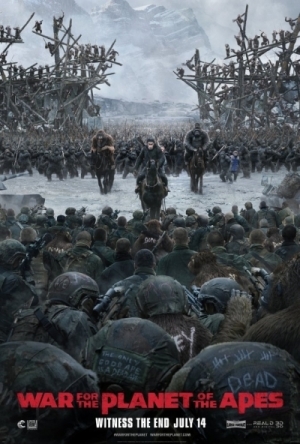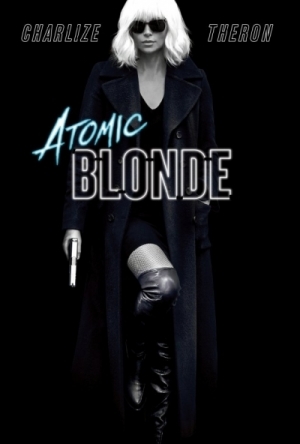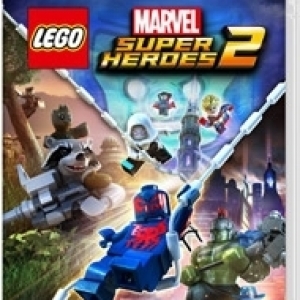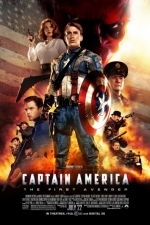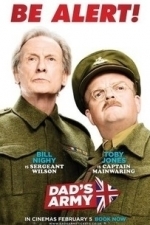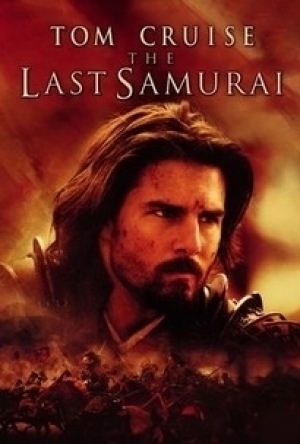Andy Meakin (5 KP) rated War for the Planet of the Apes (2017) in Movies
Jan 8, 2018
It has been 15 years since the events of the first film, and the release of the Simian Flu virus that wiped out a large percentage of humanity. The events of the second film saw the start of conflict between the apes and humans, instigated by Koba who defied Caesar’s leadership. Now, humanity are hunting down the apes, with one Colonel (Woody Harrelson) in particular striving to wipe them out entirely. When that Colonel attacks Caesar’s tribe, killing those close to him, it sets the ape leader off on a personal revenge journey, with only a few of his most loyal followers supporting him on the way. However, along the way they encounter two new recruits, an ape hermit who has also developed speech, and a young human girl who is showing signs of a new strain of the Simian virus.
It is a testament to the motion captured performances and the quality of the CGI on offer that at no point during the film do you not believe that the apes on screen are real. There’s a line in the film where Harrelson’s Colonel comments on how human looking Caesar’s eyes are, and whilst you could see that in the context of the film series’ arc (apes are becoming the new rulers, usurping humanity, and so are becoming more human), you can also see it as a nod to how the ‘uncanny valley’ dead-eye stare that plagues CGI in film is entirely absent here. Indeed, given that every scene in this relatively moderate $150million budget film is an effect shot, as apes are present throughout, it is jaw dropping that it looks a far more polished film than, for example, the $265million budgeted Rogue One – a film which tried desperately with two key CGI characters and failed so hard in the brief screen time they had. Over all the Apes series has impressed with the effects work, but here it is pretty much flawless.
But it isn’t all about the effects. In fact the action-packed film the trailers seemed to hint at is instead a thoughtful, character-driven revenge journey, with only short bursts of action. This is Caesar’s dark-journey of the soul, the end result of his attempts to live a peaceful co-existence with a humanity that fears him and his kind. Many comparisons can be drawn to films such as Apocalypse Now (something the film is aware of and manages to drop a reference to as a result), where a troubled individual, tired of war, seeks a crazed Colonel who is amassing his own army for an unknown purpose. The two core leads in their respective roles give their all. Serkis acting to a high degree, and giving genuine life to Caesar, and Harrelson gone completely Brando in his part, menacing without being overbearing.
The journey itself is a compelling story, and the support characters, some who we already know (Maurice, Luca and Rocket) acting as the conscience and the advisers to the troubled Caesar. The new additions, Amiah Miller’s war orphan who Maurice adopts on their journey, and Bad Ape (Steve Zahn) offer heart and comic relief respectively. The comic timing is perfectly placed, never feeling forced, and being deftly used to offer a glimmer of hope and joy in what is otherwise a very dark tale.
The film, overall, nicely rounds out the trilogy, whilst still leaving room for future films down the line. Matt Reeves’ direction makes effective use of his cast and settings, whilst the score by Michael Giacchino has grown more ‘ape-inspired’ since he scored the previous film, reflecting in its drums and pipes the more primate nature manner the world is taking as technology and humanity dwindles.
“Apes together strong!” is Caesar’s mantra. Indeed, all three Apes films, when viewed together, can be seen as one impressive, strong story, with a genuine progression throughout. A third film in a franchise usually derails and loses the way. Not here as this is one of the finest examples of intelligent blockbuster that you will find.
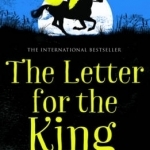
The Letter for the King
Tonke Dragt and Laura Watkinson
Book
A young messenger. A secret mission. A kingdom in peril. It is the dead of night. Sixteen-year-old...

Smithsonian Magazine
Entertainment and Magazines & Newspapers
App
***TO OUR USERS: Smithsonian magazine’s digital edition is undergoing a change of production...
Movie Metropolis (309 KP) rated Atomic Blonde (2017) in Movies
Jun 10, 2019
Just this year he signed on to direct Deadpool 2 after Tim Miller’s sudden departure. In the meantime, he’s treating us to another adults-only thriller, Atomic Blonde. But is this Charlize Theron-led vehicle as good as his previous work?
Sensual and savage, Lorraine Broughton (Charlize Theron) is the most elite spy in MI6, an agent willing to use all her skills to stay alive during impossible missions. With the Berlin Wall ready to crumble, she travels into the middle of the city to retrieve a dossier and take down an espionage ring. Once there, she teams up with an embedded station chief (James McAvoy) to navigate her way through the deadliest game of spies.
Charlize Theron is fast-becoming one of Hollywood’s most bankable stars after decent turns in Fast & Furious 8 and Mad Max: Fury Road. In Atomic Blonde this is no exception. She commands the screen in each and every frame, oozing class and showing the world she is a first-class action superstar.
The rest of the cast are also exquisite. James McAvoy can do no wrong this year after his out-of-this-world performance in Split, and his David Percival here is fleshed out, well-written and beautifully acted. Elsewhere, John Goodman and Toby Jones add even more prowess to proceedings.
Add to this some stunning cinematography and you’ve got a recipe for success. Atomic Blonde relishes the era in which it is presented with a magnificent soundtrack and beautiful direction. Leitch makes the film feel very much alive, with brutally realistic action shot without needless shaky cam or over-the-top scoring.
Unfortunately, the story is less successful. If Theron is the living, beating heart of Atomic Blonde, the script nearly strangles her. It is nearly impossible to truly understand what is happening on screen as the plot throws more twists and turns at the audience than Spaghetti Junction. Ordinarily, this would be great, but here it’s distracting and nonsensical.
Nevertheless, this is a vastly entertaining film, very much in the same vein of John Wick. In fact, it’d be fantastic if we could see these two characters brought together in a crossover of epic proportions.
Overall, David Leitch hasn’t quite recaptured the success of his first feature film but has managed to craft a highly stylised and quick-moving thriller that feels very real and utilises its exceptional cast incredibly well, with Charlize Theron being an absolute delight. It’s just unfortunate the plot is a bit of a damp squib.
https://moviemetropolis.net/2017/08/10/atomic-blonde-review-say-hello-to-mrs-john-wick/
Fred (860 KP) rated the PlayStation 4 version of LEGO Marvel Super Heroes 2 in Video Games
Jul 12, 2018
Lego Marvel Superheroes 2 is one of those good ones, although it does have some problems.
Let's start with the good. There are tons & I mean TONS of characters to unlock in this one. Mostly based on the comic book versions of the characters, with some from the MCU of course. It was so fun to play some of my favorite lesser-known characters, like the Spider-Man Noir version or the Kronan in the Planet Hulk arena.
The story is an original, with Kang the Conqueror as the main villain of the story. Because he's altering lime-lines, along with different dimensions, we have a world mixed with different worlds. We have Asgard, Manhattan Noir (a 30s-40s version of New York), Wild West Town, Avenger's Mansion, & many many more. Just like the mall in the movie The Blues Brothers, this place has got everything. It's so much fun jumping around from place to place.
Now the bad. Let's start with the voice acting. There are no famous voices in the game & it shows. Supposedly, the game was made during an actor's strike & so we got what they can get. Now, not saying the voice acting is bad, but it's just so-so. Some voices seem out of place for some characters. Captain America doesn't sound like he should. Doctor Strange doesn't sound like he should. Now, I may be ruined by the actors from the movies, but if you hear them in the game, you'll agree. It has less to do with their live-action counterparts & more of "Yeah, I never pictured Tony Stark sounding like...that."
And now my main complaint. Lots of glitches. Even after the update, I find lots of glitches in the game. The most annoying one is finding one of your characters stuck in a spot, dying over & over in an endless loop, such as falling off a platform to his/her death or stuck on some radioactive material. I found myself more than a few times having to exit the level & start all over due to this happening. Another glitch was in the arena, where Hulk turned himself back to Bruce Banner & would not turn back into the Hulk. Now maybe this was meant to happen, like in the Infinity War movie, when he was scared to turn to the Hulk, but I don't think so. Reason being towards the end of the fight, they have Hulk talking, while he was still as Bruce Banner. Luckily I didn't need Hulk to beat the level, as I would have had to start over. Other glitches include characters switching by themselves & audio cutting out.
This being said, I still want to play this game. While not one of the best Lego games, it's still fun & it's very cool, especially if you're a comic book fan.
Ryan Hill (152 KP) rated Captain America: The First Avenger (2011) in Movies
May 9, 2019
A rip-roaring homage to old fashioned serials and comic books. Joe Johnston somehow pulls off the tone and look, firmly planting me into the 1940's time period. As fantastical as it is I still feel the real world within the picture.
Protagonist Steve Rogers makes for an easily likable guy who at the start is a smaller guy, who stands up to bullies even if it means getting his ass beat. His dream is to serve his country and although not meeting physical requirements for the army, he proves the heart and courage to become the specimen of a super soldier syrum. With this experiment, Steve's size, strength and conditioning is greatly enhanced and becomes the face of WW2 propaganda. His desire to fight however gets him involved with the battle against a division of the Nazi's known as Hydra, headed by Johann Schmidt, the "Red Skull".
Red Skull is one of the best villians of the Marvel cinematic universe. I couldn't imagine him played by anyone other than Hugo Weaving who brings such gravitas and personality to the role. Red Skull is an experiment of the soldier syrum himself which gives him a certain connection to Rogers, but chooses to use his power for the service of himself and his evil desires. The film includes the element of Nazi fascination with science and experimentation, taking it a step further. Red Skull discovers other worldly magic, the Tesseract of Asgard, which he utilizes for the use of weaponry. Thus, blending historical events with an exciting dose of imagination. A Nazi more powerful than Hitler? That's pretty scary.
The action comes swift and mighty, combining the fleshy violence of war with creative comic book thrills. It's some of the most entertaining action I've ever seen. I love that the presence of Hitler can be felt even though he is not on screen. It seamlessly connects the future with the past, makes the looming threat of the entire world felt, and contains elements of other Marvel films past and present that only adds to the movie and never detracts. Tony Stark's father has a direct influence on Captain America which adds a layer to the proceeding films. Thor and Loki's place in future events are tied in perfectly. Steve's friendship with Bucky and presumed death is one of the emotional cores to the film that also plays into the sequels. Unbelievable.
Can I just mention the charming romance between Peggy and Steve Rogers? It's so natural and plays out over the duration of the film without anything ridiculous. When Peggy tears up as Steve is speeding toward the unkown in a downed plane, I lose it. I lose it every time. They never got that last dance and my heart is broken.
When Red Skull calls Steve a "simpleton with a shield" I'm like YES!! that's why I love him. I could be Steve Rogers. I could be Captain America. Well, not really, but he's one of the most relatable on screen super heroes. I'd even say he's the one I can see myself in the most. Consider me #TeamCap.
I must make mention of the wonderful musical score and songs written for the film. Very important piece to the puzzle. I listen to "Star Spangled Man" just about every time I take a walk. The costumes and production design deserve all the love in the world as well. Tommy Lee Jones is great and makes me laugh as usual. All performances are great. Points for finding a use for Captain America's vintage comic book costume and re-enacting the punch to Hitler's face from Captain America issue #1.
Who taught Cap how to fight like that though? Guess that's one of the perks of the syrum too.
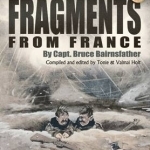
Best of Fragments from France
Bruce Bairnsfather, Tonie Holt and Valmai Holt
Book
Bruce Bairnsfather (BB) was the most famous cartoonist of the First World War and his soldier...
Movie Metropolis (309 KP) rated Dad's Army (2016) in Movies
Jun 11, 2019
Now, Dad’s Army like so many classic TV shows is getting the silver screen treatment, but does this modern-day reimagining, with an all-star British cast live up to the series that delighted so many for so long?
The movie adaptation of Dad’s Army follows on from the TV series, taking place just before the Second World War comes to an end. In Walmington-On-Sea, the Home Guard, led by Captain Mainwaring must track down a German spy, who is intent on swaying the war in their favour.
A whole host of British talent, young and old, star and each and every one of them slots perfectly into the well-worn shoes of classic characters. From Michael Gambon’s effervescent performance as Godfrey and Toby Jones’ faithful portrayal of Mainwaring to Inbetweeners star Blake Harrison taking on the role of Pike, it feels as though the casting team really put a lot of thought into getting the characteristics right.
It doesn’t stop there, Welsh beauty Catherine Zeta Jones, TV favourite Sarah Lancashire and Victor Meldrew’s long-suffering wife Margaret (Annette Crosbie) all make appearances for the fairer sex, with each bringing something to the table.
The scenery is beautiful, filmed just a couple of hours up the road in Bridlington, East Yorkshire, the normally vibrant seaside town is transformed into 1940s Walmington with an enviable amount of detail. Elsewhere, the White Cliffs of Dover are replicated exceptionally at Flamborough on the east coast.
Unfortunately, the story is a little on the light side, barely managing to stretch to the film’s slightly overlong running time. This is an issue that blights many TV to film projects and it feels like this unbelievably talented cast is somewhat wasted with a fairly run-of-the-mill plot.
It also feels like the comedy is on rations. Yes, it’s nostalgic with constant references to its small-screen counterpart, but it comes across like the producers were too busy trying to shoehorn as many elements of the TV series into the film, without concentrating on what Dad’s Army was all about – laughs.
Nevertheless, there is plenty to enjoy despite a lack of giggles. The acting is, as said previously, remarkable with fans of the series and newcomers alike being able to enjoy the warm, typically British feeling these thespians bring to the film.
Overall, Dad’s Army is a decent, albeit slightly underwhelming, effort in bringing one of the most popular TV shows of all time to the big screen. Its talent and casting are undeniable and the filming style is very impressive, but a lack of attention to the plot and a comedy drought stop it short of achieving what it clearly set out to do.
https://moviemetropolis.net/2016/02/07/full-of-wasted-british-talent-dads-army-review/
Ryan Hill (152 KP) rated The Last Samurai (2003) in Movies
Jun 23, 2019
In the role of Algren, Cruise begins a dejected man living out of a bottle, bereft of purpose & suffering post-Civil War nightmares of a man touted as a hero despite feeling the guilt of slaughtering Indians crushed under the might of a military machine; in that sense, The Last Samurai is very anti-war in its message, John Logan's story painting the Americans and specifically the Imperialist Japanese not in the greatest light. Cruise takes Algren on a traditional voyage of discovery, first pitted against the samurai code & eventually becoming consumed by it, consumed by the similarity of the way of the warrior between both cultures - and Ken Watanabe's dignified samurai 'rebel' Katsumoto learns from him, as well as the other way around, with Cruise remaining stoic & only getting flashes of a chance to display the usual Cruise charm, but that's OK - Algren isn't the kind of character to benefit from that, Cruise's natural magnetism is enough here. Wit is provided thankfully through, albeit briefly, Billy Connolly as a tough old Irish veteran & chiefly Timothy Spall as our portly 'narrator' of sorts, who serves to help mythologise Algren & the legend itself. Zwick is most concerned with that, you see, the idea of legends and how men become them, exploring that concept alongside digging into the cultural rituals and practises of a changing Japan.
Algren's story is placed at a time when the old ways of Japan were shifting, under the pressures of global politics & business; the Emperor here is a naive young man, sitting on an empty throne, looking to Watanabe for validation as his advisor's push to quash a rebellion fighting to preserve the old ways, preserve Japanese interests as America knocks on the door. That's why Cruise's role here is so interesting, his character learning of the samurai code & helping those around him remember their history, and Zwick explores well the concept of national identity alongside personal ideas of myth, legend & destiny. It all boils together in a careful script, never overblown, which neatly develops the relationships involved & helps you fully believe Algren's transformation into the eponymous 'last samurai'. Along the way, Zwick doesn't forget theatrics - staging plenty of well staged & intense fight scenes which utilise the strong Japanese production design, before building to a quite epic war climax with army pitted against army, with personal stakes cutting through it, backed up indeed by another superlative score by Hans Zimmer. It becomes more than just a historical swords & armour film, reaching deeper on several levels.
What could have been a slow paced, potentially ponderous movie is avoided well by Edward Zwick, who with The Last Samurai delivers one of the stronger historical adventure epics of recent years. Beautifully shot in many places, with some excellent cinematography & production standards, not to mention an impressive script well acted in particular by Tom Cruise & Ken Watanabe, Zwick creates a recognisably Hollywood picture but for once a movie that doesn't dumb down, doesn't pander and ultimately serves as an often involving, often damn well made story. Especially one to check out if you love the way of the samurai.
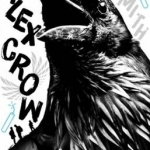
The Alex Crow
Book
From the critically acclaimed author of cult teen novel Grasshopper Jungle, Andrew Smith, comes a...
